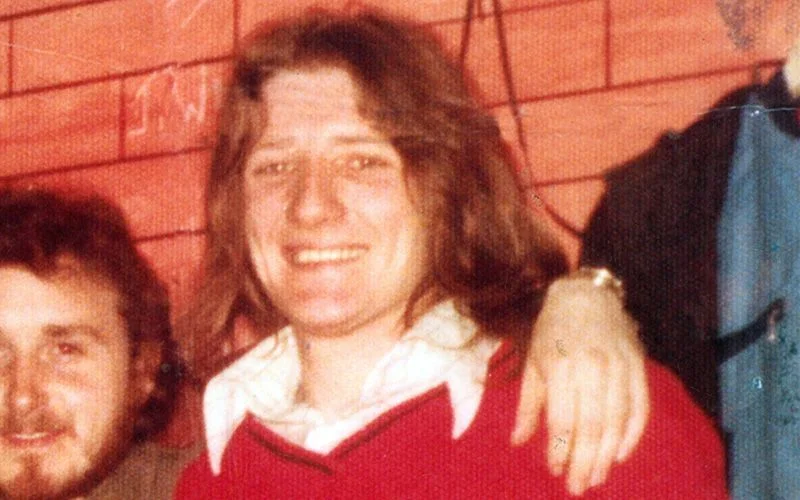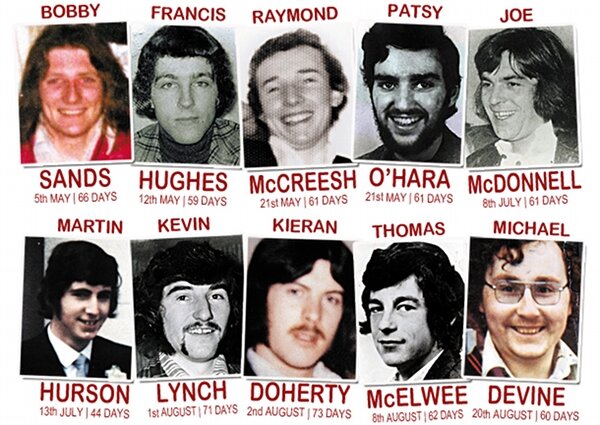On The Shoulders Of Giants . . . 'The Rhythm Of Time' - Bobby Sands
On this day in 1981, the heroic hunger strike in the H-Blocks in Long Kesh came to an end. Ten young Irish men gave their lives during this epic battle against Thatcher’s attempt to criminalise the struggle for an independent Irish Republic. Ten men died as a result of this policy. Ten men who, were it not for the British occupation of the Six Counties, would never have seen the inside of a prison cell.
The hunger strike had five demands:
1. The Right not to wear a prison uniform;
2. The Right not to do prison work;
3. The Right of free association with other prisoners;
4. The Right to organize their own educational and recreational facilities;
5. The Right to one visit, one letter and one parcel per week.
Four of the five demands were effectively achieved within a short time of the hunger strike ending, with only the Right not to do prison work outstanding. Following sabotage by the prisoners and the ‘Great Escape’ in 1983, the prison workshops were closed, effectively granting all of the five demands (but without any formal recognition of political status from the British government).
Much has been written about the hunger strikers over the years, and no doubt more will be written in the future. However, today we will let a piece by one of them speak for itself. As part of our On the Shoulders of Giants series, today we reproduce The Rhythm of Time, a poem by the first hunger striker to die, Bobby Sands.
The Rhythm Of Time
There’s an inner thing in every man,
Do you know this thing my friend?
It has withstood the blows of a million years,
And will do so to the end.
It was born when time did not exist,
And it grew up out of life,
It cut down evil’s strangling vines,
Like a slashing searing knife.
It lit fires when fires were not,
And burnt the mind of man,
Tempering leadened hearts to steel,
From the time that time began.
It wept by the waters of Babylon,
And when all men were a loss,
It screeched in writhing agony,
And it hung bleeding from the Cross.
It died in Rome by lion and sword,
And in defiant cruel array,
When the deathly word was ‘Spartacus’
Along the Appian Way.
It marched with Wat the Tyler’s poor,
And frightened lord and king,
And it was emblazoned in their deathly stare,
As e’er a living thing.
It smiled in holy innocence,
Before conquistadors of old,
So meek and tame and unaware,
Of the deathly power of gold.
It burst forth through pitiful Paris streets,
And stormed the old Bastille,
And marched upon the serpent’s head,
And crushed it ‘neath its heel.
It died in blood on Buffalo Plains,
And starved by moons of rain,
Its heart was buried in Wounded Knee,
But it will come to rise again.
It screamed aloud by Kerry lakes,
As it was knelt upon the ground,
And it died in great defiance,
As they coldly shot it down.
It is found in every light of hope,
It knows no bounds nor space
It has risen in red and black and white,
It is there in every race.
It lies in the hearts of heroes dead,
It screams in tyrants’ eyes,
It has reached the peak of mountains high,
It comes searing ‘cross the skies.
It lights the dark of this prison cell,
It thunders forth its might,
It is ‘the undauntable thought’, my friend,
That thought that says ‘I’m right!



